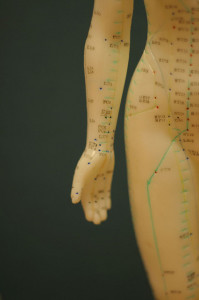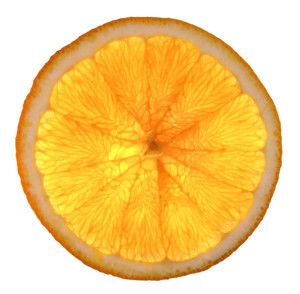- Review us on Google
- Acupuncture & Healing Arts of
Park Slope313 7th. Street
Brooklyn New York(718) 965-9458 Clinic Hours
Mon1pm to 8pmTue8am to 8pmWed8am to 8pmBy appointment
-
Latest Articles:
- • 10 Family-Friendly Activities Perfect for Spring •
- • 3 Easy Spring Dinner Ideas for a Fresh and Flavorful Season •
- • 5 Tips to Boost Your Spring Wellness Routine •
Health WellNews
Take the Stress Out of the Holidays

The holidays are a big part of the fall and winter months. This is often a time to reconnect with family and loved ones, to attend social events, and celebrate your beliefs.
Unfortunately, it can also be a time of extra commitments, nonstop activity, and pressure to get it all done. This can result in a lot of stress both mental and physical.
Everyone feels stressed occasionally, but when it continues for a long time or gets overwhelming it can take a real toll on your health. The immune system is particularly sensitive to its effects, which means that ongoing stress can leave you vulnerable to colds, flu, and other illnesses. continue reading
Acupuncture and Fall Foods
The dropping temperatures and colorful landscape can only mean one thing: fall is right around the corner. Also known as the Autumnal Equinox, the fall season begins on September 23 and lasts until December 21. During this time many people will succumb to illness, such as the common cold, flu virus (influenza) or infections, but the good news is that you can protect yourself from seasonal fall sickness by eating the right foods and seeking the services of a licensed acupuncturist.

Pumpkins
Pumpkins aren’t used strictly for making spooky Halloween jack-o-lanterns; they are also a nutrition-packed fruit that’s loaded in beneficial vitamins and minerals. Pumpkins are classified as a member of the Cucurbitaceae family, which is the same family as squash, cantaloupes and cucumbers. This festive orange fruit is loaded in variety of free radical-fighting antioxidants, such as leutin, xanthin and carotenes.
Pumpkin seeds are equally as nutritious as the actual fruit. They are an excellent source of fiber, monosaturated fatty acids (the good fat), protein, selenium, zinc and iron. So instead of tossing the pumpkin “guts” in the trash, bake them on a cookie sheet for a nutritious snack.
Apples
The adage “an apple a day keeps the doctor away,” holds true during the fall season. When you feel the onset of a hunger craving, grab an apple. It’s a sweet and delicious fruit that’s chock-full of beneficial vitamins.
Apples contain vitamin A, vitamin C, vitamin B-6, iron, magnesium, calcium, potassium and fiber. And at just 90 calories per serving, it’s a great snack choice for people who are trying to lose weight.
Brussels Sprouts
A third food that you should include in your diet this fall is Brussels sprouts. Sprouts boost immune function with their high concentration of vitamin A. and antioxidants. Brussels sprouts are also rich in protein and dietary fiber, which is just one more reason why they should be a regular part of your diet.
If you don’t prefer the taste of plain Brussels sprouts, you can make them a bit more palatable by roasting them in the oven with a glaze of olive oil and all-natural sea salt. This will create a caramelized coating that compliments its natural flavors..
Beat Seasonal Fall Illness With Acupuncture
If you really want to safeguard yourself against illness this fall season, you should consider scheduling an appointment with a licensed acupuncturist. People from across the world have used this ancient practice for centuries to ward off disease and improve their overall health. Acupuncture works by stimulating the body’s natural healing mechanism, which subsequently boosts the immune system and white blood cell (WBC) count.
Boost Your Immune System Using These Two Points
Lu 7 and St 36
Although they are invisible to the naked eye, we are exposed to millions upon millions of germs. Bacteria, viruses , fungi and protozoa are found on nearly every surface, including doorknobs, furniture, office supplies, phones, remote controls, and even the food we eat. Thankfully, most of these germs are harmless and pose no direct threat to our health, but there are others which aim to cause infection and illness. You can safeguard yourself against these foreign invaders, however, by utilizing the Lu 7 and St 36 acupuncture po ints.
ints.
Lu 7 Acupuncture Point
The Lu 7 (also known as the Lieque 7 or Lung 7) is an acupuncture point that’s commonly used to treat bodily infections while subsequently boosting the immune system. To locate it, form a “thumbs up” gesture with your hand and look for the small crease in your skin at the base of your thumb. The Lu 7 acupuncture point is found roughly 2 finger-lengths up the wrist from this crease. It’s most easily identified by feeling around this area of your wrist for a subtle depression at the bottom of two tendons.
Lu 7 is known to offer relief of the following symptoms:
- Sore throat
- Runny nose
- Nasal congestion
- Chest congestion
- Body aches
- Fever
- Headache
- Muscle cramps
Stu 36 Acupuncture Point
The St 36 (also known as Zusanli, Leg Three Mile or Stomach 36) is another powerful immune-boosting acupuncture point. Don’t let its name fool you into thinking it’s located on the stomach, though. St 36 is actually located on the underside of the leg, directly behind and below the patella.
St 36 receives its namesake for the symptoms it’s used to treat. While Lu 7 focuses on cold and fever-like symptoms, St 36 is used more digestive problems.
Lu 7 is known to offer relief of the following symptoms:
- Constipation
- Diarrhea
- Acid reflux
- Heartburn
- Gas
- Low energy
How Lu 7 and St 36 Can Improve Immune System Function
The human body’s built-in mechanism for defending against germs and foreign invaders is the immune system. This complex system is comprised of a variety of different white blood cells, such as neutrophilis, eosinopholis, monocytes and basophils, that actively seek out and neutralize harmful germs. Acupuncture treatments using the Lu 7 and St 36 stimulate the immune system so it produces more of these “fighters,” which in turn keeps us healthy while protecting against disease and illness.
Photo Credit: Thunderchild7 via Flickr Creative Commons.
6 Tips To Keep You Strong and Healthy This Fall
According to the Centers For Disease Control and Prevention (CDC), approximately 5-20% of people in the U.S. will catch the flu virus, 200,000 of whom will be hospitalized due to the complications (source). Although you can catch the flu virus at any time of the year, it’s far more prevalent during the fall and winter months. To protect yourself against the flu, colds and other illnesses this fall, check out the following 6 tips.
#1) Stay Active
Exercise plays a direct role in the human body’s immune function. Whether it’s running, jogging, playing tennis, or using your preferred machine at the gym, physical activity stimulates white blood cells and antibodies, sending them throughout the body. This improves the immune system’s ability to fight off infectious diseases, so be sure to exercise on a regular basis this fall.

#2) Increase Your Vitamin C Intake
Vitamin C is a naturally occurring antioxidant that can improve your health and protect against illness. A study conducted in 2007 found that a daily 200 milligram dose of vitamin C when taken at the onset of a cold shortened its duration by 8% in adults and 14% in children. With fall and winter being the prime time of year for colds, it’s a good idea to supplement your daily diet with at least 75 milligrams of this powerful antioxidant.
#3) Cut Back on Refined Sugars
Consuming too much refined sugar can increase your risk of developing type II diabetes, obesity and cardiovascular disease. It’s also been proven to suppress the immune system, leaving individuals more susceptible to disease and illness.
So, how sugar should you consume to stay healthy throughout the fall season? The American Heart Association (AHA) currently recommends a maximum of 37.5 grams of refined sugar per day for men and 25 grams for women.
#4) Eat Fall-Colored Foods
Yet another way to improve your health is to eat more fall-colored foods. Generally speaking, the more color you have on your dinner plate, the better. Foods that are bright orange, red and green are all excellent sources of vitamins and antioxidants. Some ideas include squash, bell peppers, zucchini and broccoli, all of which will help keep you healthy this fall season.
#5) Make a Soup
There’s no better time than the chilly fall season to make a hearty beef and vegetable soup. Avoid store-bought soups, which are usually loaded in sodium and preservatives, and instead make your own from scratch. This allows you to include a variety of beneficial vegetables and seasoning, tailoring it to your own personal preference.
Summertime Foods
As the weather grows warmer we often become more active and participate in a variety of outdoor activities. An ideal summer diet is light and filled with fresh foods with high water content, and brightly colored with summer fruits and vegetables.
Foods for a Summer Diet
BEANS
- Adzuki
- Garbanzo
- Green
- Kidney
- Sprouted
FRUIT
- Apricot
- Avocado
- Banana
- Blackberry
- Blueberry
- Cantaloupe
- Grapes
- Grapefruit
- Lime
- Mango
- Nectarine
- Orange
- Papaya
- Pineapple
- Peach
- Pear
- Plum
- Raspberry
- Strawberry
- Watermelon
GRAINS
- Brown rice
- Millet
- White rice
NUTS
- Almonds
HERBS
- Chili pepper
- Chives
- Cilantro
- Fennel
- Green tea
- Mint
- Parsley
- Peppermint
SEEDS
- Pumpkin
- Sesame
- Sunflower
VEGETABLES
- Beets
- Cabbage
- Carrot
- Celery
- Chard
- Collard greens
- Corn
- Cucumber
- Green peas
- Lettuce
- Parsnip
- Radish
- Rhubarb
- Spinach
- Squash
- Sugar peas
- Sweet potato
- Tomato
- Yams
- Zucchini
Each organ has a specific flavor that affects it. Foods with a bitter taste stimulate the function of the heart. These include green leafy vegetables such as endive, escarole, lettuce and watercress, coffee, tea and chocolate. These foods can nourish the heart, but consumed in excess do more harm than good.
Raw fruits, fresh salads, cool soups and lightly cooked meals of grains and vegetables are adequate this time of year for healthy, vigorous adults. Sprouted vegetables and grains can be mixed in with a variety of dishes to help maintain a cool body temperature.
You can even add a bit of spicy, pungent or fiery flavors. At first, spicy, fiery foods may raise the body temperature, but ultimately they can draw body heat out to the surface where it can be dispersed. For this purpose you can cook with red and green hot peppers, fresh ginger, red pepper, black pepper or cayenne. But don’t overdo it. Keep your summer spice intake to a minimum.
If you are sautéing foods, use high heat for a short period of time. When simmering or steaming foods, do it as quickly as possible so you can retain the fresh tastes.
Consuming heavy foods on hot days can make you feel sluggish and slow down your digestion. Such foods include eggs, grains, seeds, nuts and meats. As a rule of thumb, eat heavier meals in the morning or evening. This type of summer diet can help you feel lighter in the heat of the day, maintain your energy, and aid in weight loss.
For better digestion and assimilation of nutrients, avoid mixing too many foods together at one sitting. Fruits and juicier foods are best eaten alone or between meals. Summer heat along with too many cold drinks can weaken digestive organs and impair digestion; too much ice cream and iced drinks are best avoided.
Summer invites us to become more active. Just be sure to stay hydrated by consuming enough water, juices and herbal teas.


